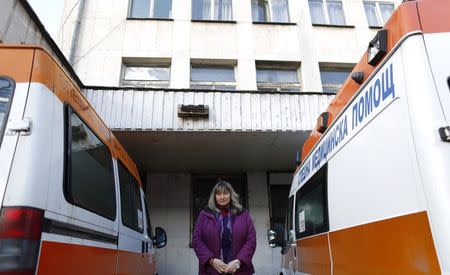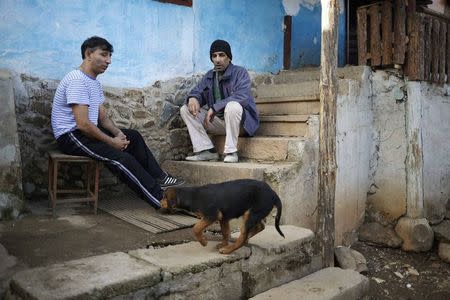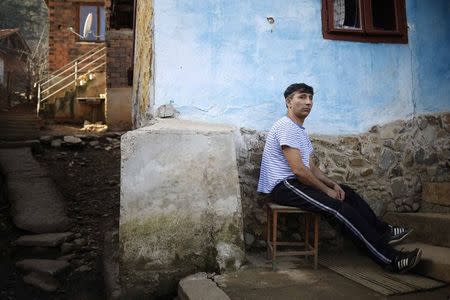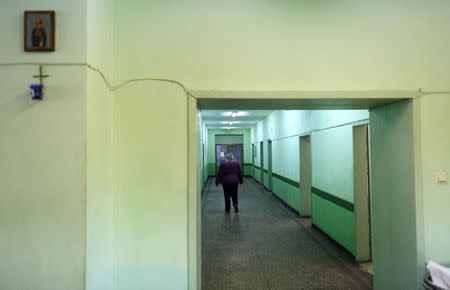Ambulance attacks open wound of Roma relations in Bulgaria
By Angel Krasimirov VRACHESH, Bulgaria (Reuters) - When Bulgarian doctor Irena Marinova arrived in an ambulance at the home of a pregnant Roma woman in November, she says she was beaten up by two men who accused her of being late. The government blamed Roma for 175 such attacks on medics last year and in December told ambulances not to go to areas where they have previously been assaulted unless their safety could be guaranteed. The remarks reignited tensions with the impoverished community and pose a new challenge to Europe's efforts to integrate its largest ethnic minority. "I have worked as a doctor for 17 years but such a thing has never happened to me," Marinova told Reuters at the hospital where she works in Botevgrad, about 40 km (25 miles) east of the capital Sofia. "Many things should change. They (the Roma) feel they have impunity and that is why they are doing this." Bulgaria is home to one of the largest populations of the EU's six million Roma, and as in other countries, many live on the fringes of society, suffer discrimination and struggle to get jobs. The EU spends billions of euros on integration projects but Bulgarian Health Minister Petar Moskov's instructions and comment that "he who has chosen to behave like a brute will be treated as one" caused outrage and risk undermining progress. Opposition lawmakers were so upset they have threatened a no confidence vote against the government unless Moskov resigns. "Moskov's statement is a gross manifestation of misunderstanding the principle of the rule of law, and an incitement to racial hatred," the head of the Bulgarian Helsinki Committee for Human Rights Krasimir Kanev said. Restricting emergency treatment to some Roma areas - a proposal Moskov watered down after talks with Roma leaders - would have further exacerbated the divide in access to healthcare between Roma and the rest of the Balkan state. Nearly 40 percent don't pay state health insurance and at 65 their life expectancy is ten years shorter than the average Bulgarian's, according to the World Health Organisation. The picture is equally bleak across much of central and eastern Europe, where the majority of Roma, an ethnic group with origins in India, are concentrated. In Bulgaria's neighbour Romania, nine out of ten live in severe material deprivation while only a third of Roma boys and even fewer girls will still be in school aged 16, according to a 2014 World Bank study. In Serbia, there are persistent attacks against Roma by far-right groups. The life expectancy for Roma is around 63 years compared to 75 years for the rest of the Serbian population. "Many of them lead a decent life and do not create problems in society. But these Roma, in Bulgaria as well as other European countries, are invisible, while some politicians and media focus only on the poorest part of the Roma community and those who commit crimes," said Liliya Makaveeva, the executive director of the Bulgaria-based Integro Association, a Roma NGO. Bulgaria was allocated 6.9 billion euros in EU funds towards integrating disadvantaged people between 2007 and 2013. These funds support a wide range of sectoral investments, including those that concern the Roma, such as financial help for housing and school infrastructure. It will get a total of 7.2 billion euros in EU funds from 2014 to 2020. BEATEN AND INSULTED Many Bulgarians came out in support of Moskov. Medics staged a rally and draped banners on their ambulances in solidarity. Furious at the calls for him to step down, they sent a declaration to parliament promising mass resignations if he did. "We did not lie, we were beaten and insulted," it said. Moskov dismissed calls for his resignation as an attempt to destabilize the government early in its term. An anaesthesiologist who promises to modernize Bulgaria's health service, Moskov's popularity has surged since the row. According to a recent Gallup poll, his approval rating has risen to 27 percent in January from 13 percent in December. Nevertheless, Moskov later apologised for his remarks and met representatives of the Roma community for talks. In a statement to Reuters, the health ministry said there had been no new attacks on doctors since such discussions were held. "I offered my apologies and I will do it again for some of the words that I spoke," Moskov said. The conciliatory tone was echoed by Prime Minister Boiko Borisov, whose cabinet contains members of ethnic groups: "we consider them our brothers and sisters and they have nothing to be concerned about." Sasha, a Roma woman in her twenties with a three-year-old son in Vrachesh, a village of nearly 4,000 people at the foot of one of the highest peaks in the western Balkan mountains, said medics actually responded quickly to emergency calls, while several people around her vigorously agreed. "Yes, incidents happen and that's not nice, but I do not understand why you need to divide Bulgarians and gypsies. Who needs such discrimination?" she said. "We are people, we live together in this country and we all need urgent help. It's a hard life, many people are jobless but we're not complaining." (Additional reporting by Aleksandar Vasovic in Belgrade and Luiza Ilie in Bucharest; Editing by Matthias Williams and Anna Willard)





